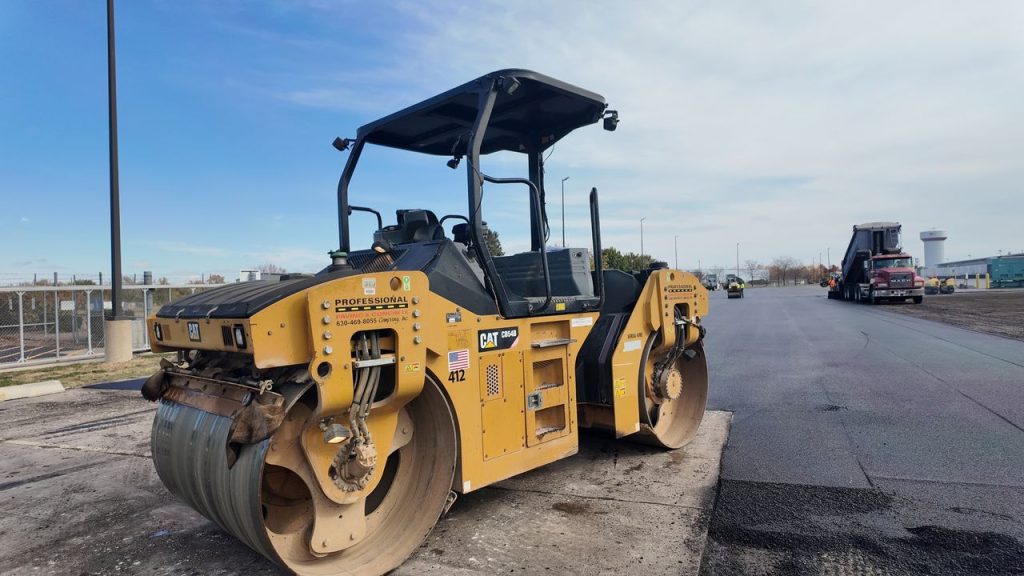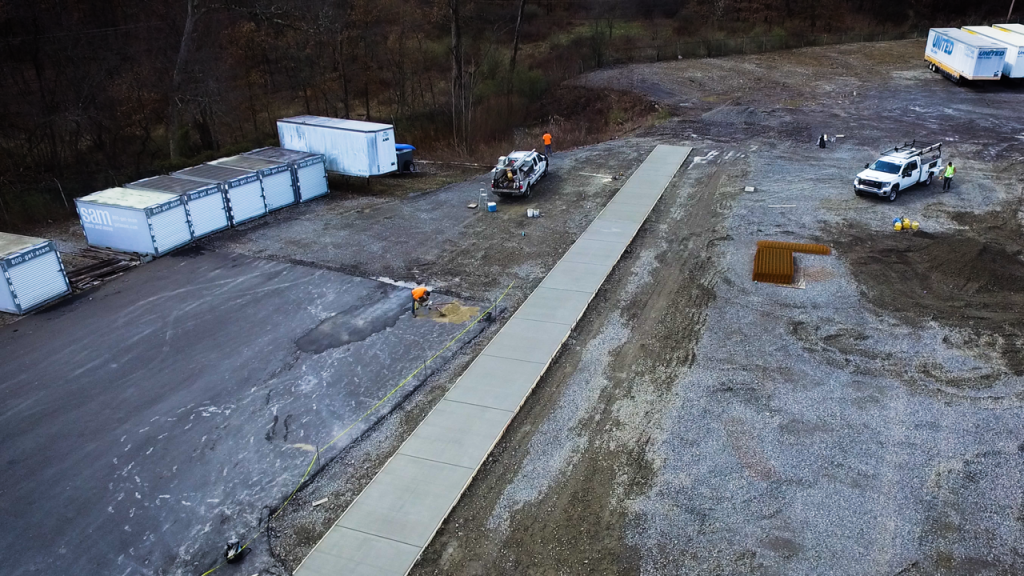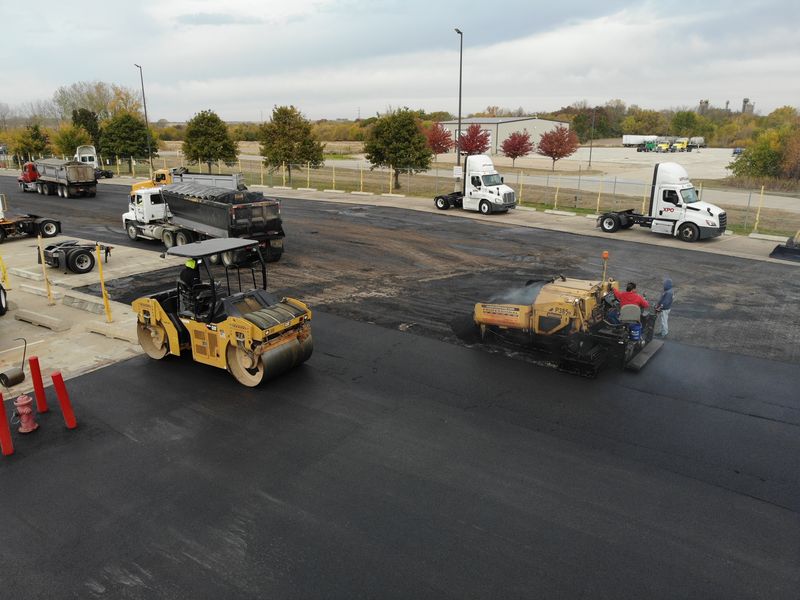Starting a commercial paving project isn’t just about pouring asphalt and calling it a day. There’s more to it. Way more. And if you’re a property manager, business owner, or facilities director in cities like Pittsburgh, Orlando, Nashville, or anywhere else across the U.S., you know how important it is to get things done right the first time.
At The Pavement Group, we’ve seen what happens when projects begin without a proper plan. Budget overruns. Timeline delays. Safety issues. Even legal headaches. The good news? You can avoid all that with the right preparation and team on your side.
This blog walks you through everything you need to consider before starting your next paving project so you can make smart, cost-effective decisions from day one.
Why Planning Is Key in Commercial Paving
Before the first truck arrives or any ground gets broken, you need to have a clear plan. Commercial paving involves more than just asphalt. It requires coordination, communication, and compliance with local laws and industry standards.
Here’s Why Planning Matters:
- It prevents unexpected delays and costly surprises
- It ensures compliance with ADA and local codes
- It improves durability and safety for years to come
- It helps manage traffic flow during construction
- It protects your investment long-term
Skipping the planning phase is like skipping the foundation when building a house. It just doesn’t work.
Step-by-Step Guide to Starting a Commercial Paving Project
1. Know Your Surface Needs
Not all pavement is created equal. A retail shopping center needs different specs than an industrial warehouse. Before anything else, define the function of your space.
Ask yourself:
- Will it support heavy trucks or only passenger cars?
- Will it require drainage solutions?
- Are there existing surface issues like potholes or drainage cracks?
2. Choose the Right Paving Material
Asphalt is popular, but it’s not your only option. You might need concrete or even porous paving depending on your location and use case. For example, in cities like Phoenix or Atlanta where heat is intense, materials matter even more.
3. Set a Realistic Budget
Costs can vary based on material, labor, location, and scope. Work with your paving contractor to develop a detailed estimate and allow for a contingency budget. Don’t forget to factor in long-term maintenance and sealcoating.
4. Understand Permits and Local Regulations
Each city and state has its own requirements. Whether you’re in Charlotte, Columbus, or Chicago, you may need permits for excavation, drainage, or ADA compliance. A trusted contractor like The Pavement Group will handle all that for you.
5. Schedule Around Traffic and Weather
Timing is everything. Weather delays can cause chaos if not factored in, and disrupting customer access can hurt your bottom line. We’ll help you schedule in phases or during off-hours to minimize disruption.
Client Testimonial From Houston, TX
“Our commercial center in Houston needed a full parking lot overhaul. We were nervous about downtime affecting our tenants. The Pavement Group walked us through every step, coordinated with tenants, and phased the project so nobody lost business. It was efficient, professional, and completed right on time.”
— Lydia M., Property Manager, Houston
The Importance of Working With a Reputable Contractor
There’s no shortage of paving companies out there. But trust us when we say that not all are created equal. Your contractor should be more than someone who shows up with trucks. They should be a partner who guides you from planning to post-project maintenance.
What Makes The Pavement Group Different?
- Nationwide coverage with local expertise
- In-house project managers and planners
- Advanced software for scheduling and budgeting
- Safety-focused crews with decades of experience
- ADA and compliance experts on staff
When you work with us, you’re not just hiring a paving crew. You’re getting a full-service team that’s committed to your project’s success.
Maintenance Planning Starts Before the Project Ends
A lot of people don’t think about maintenance until cracks appear. That’s too late. The best time to plan for pavement upkeep is during installation. That includes sealcoating schedules, line striping updates, drainage checks, and patchwork planning.
Benefits of Early Maintenance Planning:
- Extends pavement life by years
- Saves you money on costly repairs later
- Keeps your property looking clean and professional
- Reduces liability from trip hazards or puddles
At The Pavement Group, we’ll help you design a post-project maintenance plan tailored to your site and climate.
Your Paving Project Deserves a Solid Start.
The truth is, a successful paving project starts way before the first roller hits the lot. It begins with smart planning, experienced professionals, and clear communication. Whether you’re upgrading your property in Atlanta, revamping a school in Minneapolis, or expanding a hospital in Sacramento, The Pavement Group is ready to help.
We don’t just pave. We guide, we plan, and we execute with precision. Let’s turn your commercial paving project into something that lasts. Something that reflects your brand and keeps your property safe, clean, and durable.
Let’s get your project started the right way. Contact The Pavement Group today.
Frequently Asked Questions
1. How long does a commercial paving project usually take?
Timelines vary based on the size of the project, weather conditions, and materials used. Small parking lots might take a few days, while larger properties can take weeks. Planning and phasing help keep your project on schedule.
2. What’s the difference between asphalt and concrete for commercial paving?
Asphalt is flexible and cost-effective but requires more frequent maintenance. Concrete is more durable and long-lasting but costs more upfront. The best choice depends on your site’s needs and budget.
3. Do I need a permit for my paving project?
Yes, most cities and counties require permits for excavation, drainage, and ADA compliance. The Pavement Group handles all permitting for you to ensure everything is done legally and up to code. This saves you time and stress.
4. How much does commercial paving cost per square foot?
Pricing ranges from $2 to $7 per square foot depending on materials, region, and scope. Large projects often get bulk pricing. A detailed site visit will help provide an accurate quote.
5. How do I choose the right paving contractor?
Look for a company with experience, licensing, insurance, and positive reviews. Ask for references and examples of similar projects. Choose someone who communicates clearly and offers full-service planning.
6. How do I minimize business disruption during paving?
We schedule work during off-peak hours or in phases. The Pavement Group also coordinates with tenants or staff to manage access. Proper signage and communication are part of our process.
7. What kind of maintenance does asphalt need after installation?
It needs sealcoating every few years, crack filling as needed, and regular inspections. Preventative maintenance helps avoid major repairs later. Our team will create a custom plan for you.
8. How can I ensure my lot stays ADA-compliant?
We assess slopes, signage, curb ramps, and space dimensions during the planning phase. All work is done to ADA standards. This helps you avoid legal issues down the road.
9. Is drainage important in commercial paving?
Yes, poor drainage leads to water pooling and pavement damage. We design drainage solutions based on your site’s slope and climate. This keeps your lot safe and long-lasting.
10. What permits and regulations affect commercial paving projects?
Key areas include paving permits, building codes, ADA accessibility guidelines, environmental rules about runoff, and zoning laws. Consult local building departments and paving pros for full compliance.


